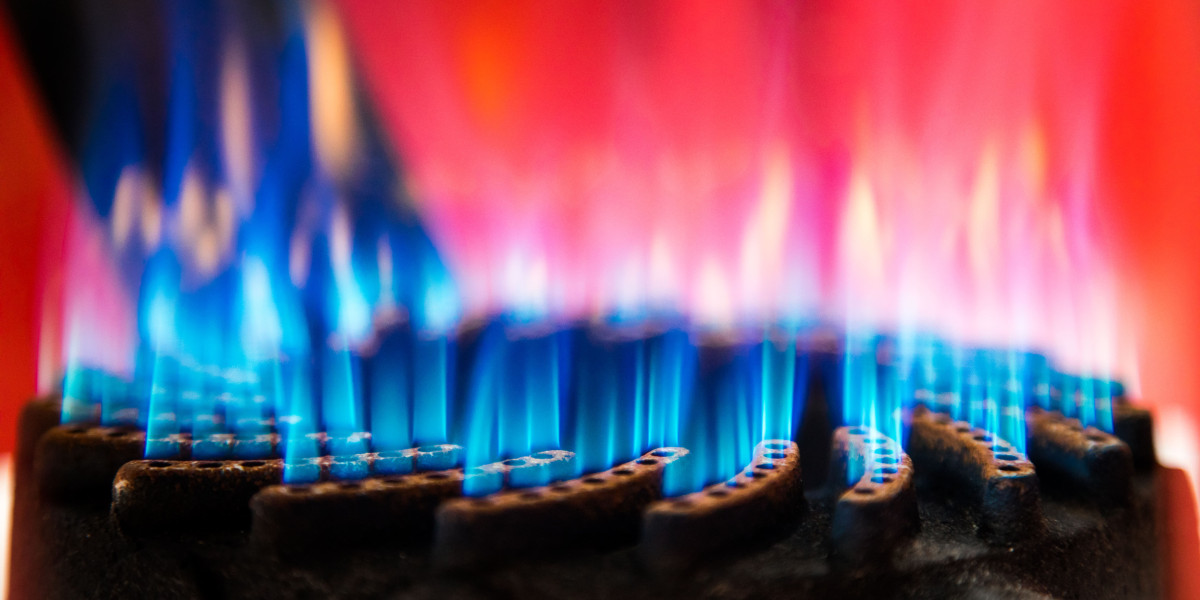 As a landlord, it's your responsibility to ensure all gas appliances, flues, and chimneys undergo annual inspections. You must also give a copy of the report to your tenants.
As a landlord, it's your responsibility to ensure all gas appliances, flues, and chimneys undergo annual inspections. You must also give a copy of the report to your tenants.If the engineer believes that a particular appliance or installation is immediately dangerous they will ask permission to shut off gas from the system and recommend the installation of inspection hatches.
What is what is a Gas Safety Certificate (GSC)?
A landlord gas safety certificate is a document that demonstrates that all the rented property's gas appliances and flues have been examined by a certified gas engineer. Landlords are legally obliged to arrange a gas safety check once per year for each rental property they own. The inspection is carried out by an Gas Safe registered engineer and makes sure that all pipes, appliances, and flues are in good working order and in compliance with safety regulations.
Landlords are also legally required to provide their tenants with an original copy of the CP12 Gas Safety Certificate (Gas Safety Record) after each annual gas safety inspection and test. The certificate should be provided to tenants within 28 days of the Gas Safety Inspection and to new tenants at the beginning of their tenure.
CP12 is an abbreviation for the CORGI Proforma 12 which was used by the Council for Registered Gas Installers (CORGI) prior to being replaced by the Gas Safe Register in 2009. The form contains the date of the most recent gas inspections and tests, their results, any actions that need to be taken, as well as the name and title of the engineer who performed the check.
The engineer will give advice if the Gas Safety Check reveals any issues with the gas appliance. This will include the items that need to be addressed to make it safe to use. If an appliance is deemed to be immediately dangerous or Abnormally Lethal the gas supply will need to be turned off until the problem is resolved.
It is illegal to a tenant who refuses to let the gas safety check to be conducted. If needed landlords can apply to the courts for an order to stop the tenant from preventing gas safety checks. However, it's usually easier to send a letter which describes why the check is vital and what is involved. This will encourage the tenant who is hesitant to allow access to the house. If not, the landlord will need to start the eviction procedure.
How often should I renew my Gas Safety Certificate?
The law requires that landlords and agents for letting are required to conduct an annual gas safety inspection of all chimneys and gas appliances that they provide to their tenants. This is to ensure that their equipment is safe to use and there are no leaks of gas in the property. This is a vitally important responsibility for landlords and they should make sure that they are inspected for gas by a qualified gas engineer.
The Gas Safety Certificate, formerly known as the Gas Safety Check Record, is a legal document which confirms that an engineer has completed a gas inspection within the last 12 months. It is issued by the landlord, and should also be given to the tenant to verify the safety of gas supply. It is valid for 12 months and has to be renewed every year.
If a landlord fails to provide their tenants with a Gas Safety Certificate then they are breaking the law and could be penalized by the local authority. It is therefore essential for landlords to have their Gas Safety checks carried out on time and keep a copy of the certificate in case a tenant needs it.
Installing inspection hatches on all gas appliances is a good idea since it allows engineers to easily access the appliances for their annual inspections. The engineer will categorise the appliance as 'at-risk' and may recommend that tenants refrain from using the boiler until the inspection hatch is installed.
Landlords are also required to give tenants at least 24 hours' notice before entering the property to conduct Gas Safety Checks. This gives tenants time to prepare for the visit and provide permission, if required. If a tenant does not allow the engineer's entry the landlord must explain the reason for this and what will happen in the event that the tenant refuses. If the tenant is still refusing then the landlord should consider evicting them using section 21 of the Housing Act 1988.
What happens if I don't get a Gas Safety Certificate?
It is the legal obligation of landlords to ensure that their property has an approved gas safety certificate before tenants move in. Infractions to this law could result in a landlord being prosecuted or fined severely. The regulations require that landlords must also provide copies of gas safety certificates to their tenants upon request.
Landlords must have a Gas Safe registered engineer visit their rental property to conduct an inspection of all gas appliances. During the inspection, a Gas Safe registered engineer will be able to identify any issues that could pose a risk to tenants. The engineer will then issue an CP12 Gas Safety Document, also referred to as a Landlord Gas Safety Record (or a Gas Safety Certificate).
This is an important document that every tenant should take possession of and keep. This document contains information about gas installations in a rental property as well as the date they were tested and their expiration dates. It can help tenants spot any issues with the appliances or installation and ensure that they know how to reach a Gas Safe engineer to have them examined.
Landlords must provide an inspection report on gas safety to their tenants, both current and new, within 28 days after the engineer has visited their property. They must also give a copy of the CP12 to the tenant on the day their tenancy starts. Landlords who do not provide an original copy of the gas safety certificate can be prosecuted in accordance with the regulations and could face unlimited fines or six months imprisonment.
Similar to this landlords must ensure that carbon monoxide detectors are in operation in their homes and make arrangements for them to be checked every month. If the alarm isn't working, the landlord should repair it. The rules around this apply to private, council and housing association landlords, as well as to licensable houses of Multiple Occupation (HMOs).
In June 2017 the High Court ruled that it was unlawful for landlords to send Section 21 notices without providing their tenants with an official gas Safety Certificate. The decision was based upon a law that requires landlords who have assured shorthold tenancies to obtain a gas safety certification for their property before tenants move in.
How can I obtain a Gas Safety Certificate (GSC)?
Landlords have a legal responsibility to make sure that the gas appliances, flues, and pipework in their homes are safe for tenants. Gas Safety (Installation and Use) Regulations 1998 regulate this. To comply with the regulations landlords must conduct annual gas inspections of all gas appliances and flues that they install for use in a property. This is referred to as a CP12 gas safety certificate. It must be filled out by a qualified Gas Safe registered engineer after each inspection.
Landlords should also consider performing a boiler inspection in conjunction with a CP12 inspection. This will ensure that all gas appliances are operating properly and safely. Landlords can usually receive a combination CP12 and boiler service at an affordable price from a professional gas engineer. They will be able to examine the seals on boiler burners, check the flue system for cracks and leaks, clean the burner and heat exchanger and conduct general maintenance.
The CP12 is often called "landlord's gas safety certificate" but it actually is known as the Gas Safety Record Documentation. It contains the results of all safety inspections and details of any actions or problems that require attention. Landlords are required to give tenants a copy of the CP12 document within 28 days of the Gas Safety check being completed.
It is essential that the landlord or letting agent only allow Gas Safe registered engineers to access the property to conduct safety checks and for maintenance. It's a good idea inform tenants of the importance of allowing access and explaining that the gas engineer will ensure they are safe from carbon monoxide poisoning. If the tenant is unwilling to allow access, the landlord or agent must state the legal requirements in writing. Then, they should visit the property and force entry if required.
Tenants should always see a Gas Safe ID card from the engineer before they allow them into the home to prove that they're qualified to work on the gas systems in your home and is able to complete the gas safety check efficiently and efficiently. It is also important to keep in mind that the gas engineer is legally allowed to disconnect faulty equipment and can cut off your gas supplies in the event of a need.




